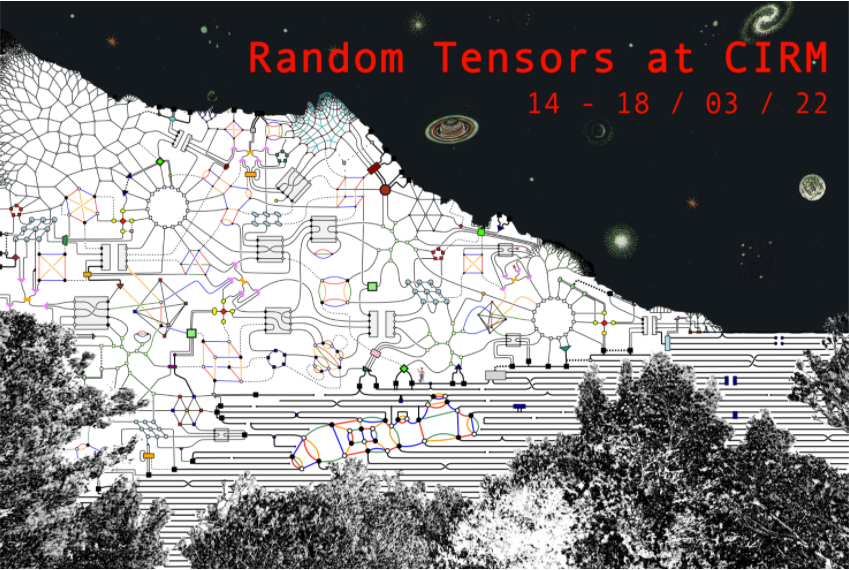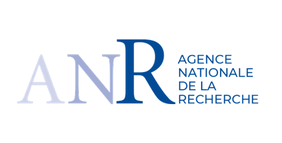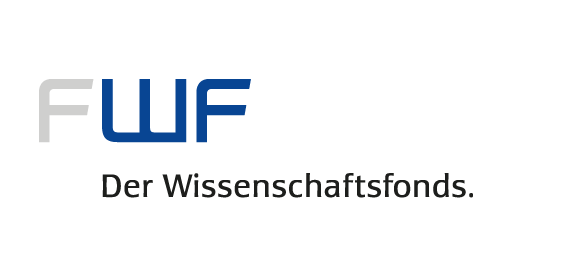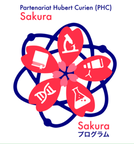|
Scientific Committee
Comité scientifique Pierre Comon (CNRS, Université Grenoble Alpes) Organizing Committee
Comité d’organisation Stéphane Dartois (Université de Bordeaux) |
|
Once your registration is accepted, please tell us more about your physical participation as soon as it is possible for you. You can modify this later.
|
|
The importance of random matrices in mathematics and their applications is now well-established. In view of this, random tensors are expected to play a growing role in many areas of mathematics, physics, and computer science. To our knowledge, communities using random tensors have mostly grown apart, developing their own tools and results. The aim of the conference is to bridge this gap by bringing together researchers working on random tensors and their applications, with an emphasis on mathematics and statistics, quantum information, condensed matter physics, and quantum gravity and discrete geometry.
In mathematics, tensors are introduced as a practical way to understand multi-linear maps. Many crucial notions and structures from linear algebra do not have direct analogues in the multi-linear setting modeled by tensors. Concepts such as the rank or the eigen/singular value decompositions are more subtle for tensors and significant effort has been made to develop the theory in this more general case. In quantum information theory and condensed matter theory, the notion of entanglement of tensors and the different Ansätze for physically relevant quantum states have received a significant amount of attention with the recent advent of quantum technologies. Furthermore, random tensors allow studying the combinatorics of discrete geometries, as generating functions of classes of triangulations in arbitrary dimensions can be expressed using tensor integrals throughout their Feynman graphs expansions. This finds direct applications to discrete statistical approaches to quantum gravity. The conference will focus on the different topics described above, emphasizing the connections between them, with the stated goal of encouraging multidisciplinary interactions. Beside the traditional research talks, we plan to organize four lectures focusing on the main theoretical and applied aspects of (random) tensors and a poster session permitting young researchers to present their work. |
Les matrices aléatoires jouent désormais un rôle fondamental en mathématiques et leurs applications. On peut donc s’attendre à ce que les tenseurs aléatoires acquièrent une importance croissante dans de nombreuses thématiques mathématiques, physiques et informatiques. À notre connaissance, les communautés utilisant les tenseurs aléatoires se sont principalement développées séparément, et ce faisant ont inventé leurs propres approches et méthodes. Cette conférence a pour but de construire des ponts entre les différentes communautés utilisant les tenseurs aléatoires et leurs applications en permettant aux chercheurs de ces domaines de se rencontrer. Lors de cette conférence, une attention particulière sera portée sur les tenseurs aléatoires en mathématiques et statistiques, information quantique, théorie de la matière condensée, ainsi qu’en géométrie discrète et gravité quantique. En mathématiques, les tenseurs servent de représentation pour les applications multi-linéaires. La plupart des concepts de l’algèbre linéaire n’ont pas de généralisation dans le contexte multi-linéaire des tenseurs. Des notions telles que le rang ou les valeurs propres sont plus subtiles dans le cadre tensoriel et des efforts importants ont été fournis dans le but d’étendre ces notions dans ce cas général. Dans le cadre de l’information quantique et de la matière condensée, l’intrication des tenseurs et différents Ansätze pertinents pour décrire certains états physiques ont reçu beaucoup d’attention du fait des avancées des technologies quantiques. Enfin, les tenseurs aléatoires trouvent une application dans la combinatoire des géométries discrètes, car les fonctions génératrices de classes de triangulations en dimension arbitraire peuvent être comprises à l’aide d’intégrales de tenseurs de par leurs développements en graphes de Feynman. Ceci trouve une application directe dans les approches statistiques discrètes du problème de la gravité quantique. La conférence se concentrera sur les sujets décrits précédemment, soulignant les connections entre eux et encourageant la multi-disciplinarité. En complément des présentations de recherche, nous prévoyons d’organiser quatre cours sur les aspects théoriques et appliqués des tenseurs (aléatoires) ainsi qu’une présentation de posters permettant aux jeunes chercheurs de promouvoir leurs travaux.
|
Mari Carmen Bañuls (Max Planck Institute of Quantum Optics) Tensor networks for numerical simulations of quantum many-body systems
Sylvain Carrozza (Radboud University) Random tensors in discrete geometry and quantum gravity, combinatorial aspects
Joseph Landsberg (Texas A&M) Geometric aspects of tensors relevant for the study of random tensors
Michael Walter (University of Amsterdam) Tensor networks in holography and quantum information theory
Invited speakers
Gérard Ben Arous (New York University)
Matthias Christandl (University of Copenhagen)
Benoit Collins (Kyoto University)
Jens Eisert (Freie University of Berlin)
Henrique Goulart (INP Toulouse, IRIT)
Razvan Gurau (CNRS, École Polytechnique)
Norbert Schuch (University of Vienna)







